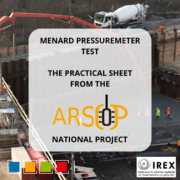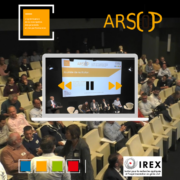The pressuremeter is essentially a geotechnical investigation equipment which allows in a single test to evaluate both the deformation and failure properties of soils and soft rocks. It measures the pressuremeter modulus, creep pressure and limit pressure. In the more advanced equipment such as the self-boring pressuremeter, it also measures the initial state of stress in the ground and therefore the coefficient of earth pressure at rest can be obtained.
The work done in France and abroad over the past 40 years has permitted the use of pressuremeter test results as valid design parameters for the design of retaining walls, shallow and deep foundations, soil reinforcement, etc.
However, many interesting points highlighting the challenges for future development of pressuremeter have been put forward for discussion recently and especially:
- the subject of limitations of the testing procedure,
- the availability of equipment,
- the difficulties in the interpretation and analysis of data derived from the test, etc.
To continue with the development of pressuremeter, three aspects of pressuremeter testing must be re-evaluated:
- Use of pressuremeter for ground investigation.
- Accuracy of displacement calculations for geotechnical structures.
- Assessment of the bearing capacities of shallow and deep foundations.
The need for a research program including different work tasks addressing these points and the involvement of the geotechnical profession has been identified.
 A collaborative research and development project which gathers public and private organizations of the geotechnical community (owners, construction companies, offices studies, engineering, industries, researchers…).
A collaborative research and development project which gathers public and private organizations of the geotechnical community (owners, construction companies, offices studies, engineering, industries, researchers…). Administered by IREX (Institut pour la Recherche appliquée et l’EXpérimentation en génie civil)
Administered by IREX (Institut pour la Recherche appliquée et l’EXpérimentation en génie civil)







